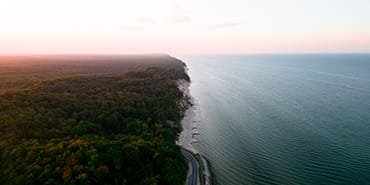We believe the shift towards net zero is now becoming a central concern for investors. Can a company continue to perform its activity without emitting CO2? Can it run a profitable business model in a post carbon world or as it transitions to net zero?
As investors, we at Lombard Odier embrace a more forward-looking perspective, where we aim to identify the companies that we think are fit for the transition and those that are not. We believe that climate-related financial exposure should be our guiding principle for allocating capital, and that we should stop simply focussing on low-carbon companies.
Investors should make the net-zero trajectory a condition for investment
How do we do that? By analysing companies’ transition trajectories and assessing how aligned they are with the goals of the Paris Agreement. Having an understanding of how companies are approaching their decarbonisation pathway helps us deploy capital across all sectors and regions of the global economy without creating biases and with a focus on the potential financial exposure of companies to climate change.
We believe that low carbon strategies that avoid rather than address the problem, the excessive use of carbon offsets and shorting high emitters, will not offer a long-term solution. While these represent some of the common approaches taken by investors today, we are convinced that it is only by investing in carbon reductions in the real economy that the transition can be accelerated, and that is where climate opportunities lie.











share.